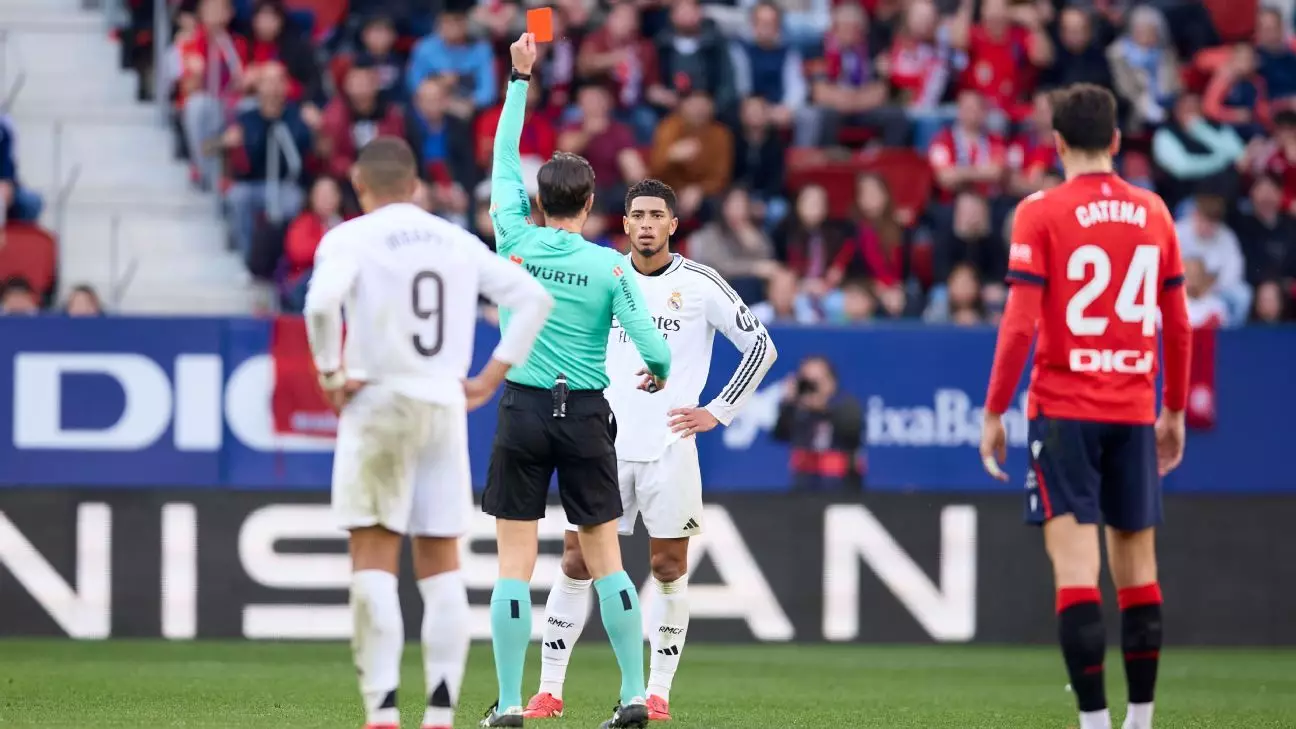In the world of professional football, referees play a pivotal role in determining the outcome of matches, often becoming the focal point of discussion and controversy. Recently, Carlo Ancelotti, head coach of Real Madrid, expressed his preference for officiating standards in the UEFA Champions League over La Liga. His remarks come in light of mounting dissatisfaction with refereeing decisions in Spain’s top division, particularly following Madrid’s contentious encounters. This article delves into Ancelotti’s comments, the implications of VAR (Video Assistant Referee) usage, and the broader context of officiating in football today.
Ancelotti’s assertion that Champions League referees are generally more reliable stems from the reduced number of controversies and selective VAR interventions seen in the tournament. He suggests that UEFA’s competition attracts the best referees from various footballing nations, which elevates the quality of officiating. By stating that VAR “only intervenes when it’s necessary,” Ancelotti highlights a significant difference in the application of technology between the two leagues, pointing to a sentiment among many players and coaches who feel that VAR often disrupts the flow of matches rather than enhancing their fairness.
His comments resonate in a climate where fans and clubs alike are increasingly critical of refereeing decisions in La Liga. Given that Real Madrid recently suffered from controversial calls in their matches, including a defeat against Espanyol and draws against both Atlético Madrid and Osasuna, Ancelotti’s remarks reflect a growing frustration shared by his squad and the club’s executives.
The impact of refereeing decisions on the outcomes of matches is not a new phenomenon, yet the recent trio of unfortunate results has sparked outrage among Madrid’s hierarchy. Just prior to their Champions League clash against Manchester City, Real Madrid executives convened with officials from the Spanish refereeing body to scrutinize contentious calls, including a disputed red card shown to Jude Bellingham. Ancelotti emphasized the need for clarity and fairness in officiating, stating his surprise and discontent with the decisions that negatively affected his team.
Elucidating the atmosphere surrounding these incidents, Ancelotti’s frustration indicates a systematic issue that could erode trust in the officiating body. In a league where the competition is fierce, discrepancies in refereeing standards may lead to significant ramifications for clubs striving for glory, both domestically and in European competitions.
One of the most recent points of contention is Jude Bellingham’s red card, which has raised questions about the referee’s judgment. Ancelotti has voiced hope that Bellingham may escape a suspension. The situation reflects broader concerns over how refereeing decisions can impact players and teams, drawing attention to the need for better education and standards among officials to avoid such misunderstandings in high-stakes matches.
Ancelotti’s disappointment is palpable, as he recalled how a series of decisions adversely affected their momentum. Such situations often foster division and diminish the sport’s integrity, highlighting the need for a robust dialog about improving referee training and the consistency of decisions across competitions.
In contrasting Champions League officiating with La Liga, Ancelotti’s comments also underscore the prestige associated with Europe’s top club competition. The atmosphere surrounding Champions League matches is charged with emotional and competitive energy, which arguably intensifies the scrutiny faced by referees. However, the notion that a specialized pool of referees can better navigate this environment speaks to an underlying respect for their capabilities.
Competing against Manchester City, a team renowned for its skill and tactical acumen, not only presents a significant challenge for Madrid but also showcases the importance of clear decision-making on the pitch. As Ancelotti prepares his squad for this crucial matchup, he remains optimistic about leveraging the advantage generated in the first leg, even amid the scrutiny surrounding officiating.
Carlo Ancelotti’s comments offer a candid perspective on the current state of officiating in football, shedding light on the perceptions of key stakeholders within the game. The challenges faced by players, coaches, and officials demand a collective effort to enhance standards and restore confidence in the sport. As the UEFA Champions League continues to evolve, it calls for an ongoing commitment to improving officiating practices in all competitions, ensuring the beautiful game maintains its integrity and respect. Only through such efforts can football hope to mitigate the controversies that often overshadow the thrilling moments on the pitch.

Leave a Reply